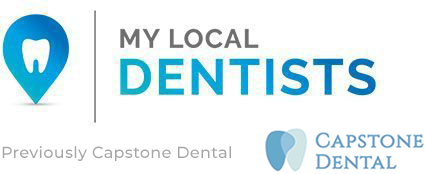Ask the Dentist: Dry Mouth

Does your mouth feel dry? Do your lips and tongue feel cracked? Dry mouth is a prevalent problem affecting 10% of people and 25% of older persons.
This condition is often a symptom of an underlying problem, such as medicine side effects, medical treatments, salivary gland issues, or dietary and lifestyle factors.
If not treated, dry mouth can result in oral infections, tooth loss, and decay. Managing dry mouth involves adjusting medicines, staying hydrated, improving oral hygiene, changing diet, using saliva substitutes, or even undergoing surgery for salivary gland issues.
Understanding Dry Mouth
Dry mouth, or xerostomia, can be an objective decrease in saliva production or a subjective feeling of dryness. Addressing this condition is essential to prevent further complications.
Effects of Dry Mouth
Teeth Problems:
- Tooth loss and pain
- Tooth decay (dental caries)
- Gum disease (periodontal disease)
Eating Problems:
- Difficulty with eating, chewing, and swallowing
- Changed or reduced ability to taste food
- Loss of appetite
- Poor nutrition (malnutrition) leads to a decreased quality of life
Throat Problems:
- Sore throats and hoarse voice
- Difficulty with speaking
- Throat infections (pharyngitis or laryngitis)
General Problems in the Mouth:
- Oral infections such as fungal candidiasis
- Issues with wearing dentures and sore gums
- Bad breath (halitosis)
- Dry and cracked lips
- Burning sensation of the lips and tongue
- Poor sleep due to dry mouth
Signs and Symptoms of Dry Mouth
- Thick, sticky, or stringy saliva
- Dry, rough, or cracked tongue
- Feeling like the tongue sticks to the roof of the mouth
- Trouble chewing or swallowing food
- Regular bad breath
- Frequent mouth ulcers
- Dry and cracked lips
- Oral fungal infections
- Extensive tooth decay
- The sensation of tingling or burning in the mouth, lips, and tongue
- Loose dentures due to low saliva flow
Causes of Dry Mouth
A dry mouth may be caused by a temporary condition that can be easily solved or a chronic disease that needs complex treatment.
- Medicines: Many medicines, mainly those older adults use, contribute to dry mouth. These include antidepressants, antihistamines, some blood pressure medicines, eye drops, cough medicines, pain relievers, urinary problem medicines, and asthma inhalers. Illegal drugs like cocaine also cause dry mouth.
- Dehydration: Insufficient fluid intake can thicken saliva, causing dry mouth. Dehydration may also result from excessive exercise, extreme heat, or medical conditions like blood loss, diarrhoea, or kidney failure.
- Infection: Bacterial or viral illnesses, including mumps, that affect the salivary glands can block and inflame salivary ducts.
- Salivary Duct Obstructions: Mineral deposits in saliva can form stones that block the salivary ducts.
- Medical Conditions: Certain diseases, such as AIDS, diabetes, Parkinson’s disease, lupus, and Sjogren’s syndrome, increase the likelihood of dry mouth. Sjogren’s syndrome is particularly notable for decreasing fluid production in the eyes, salivary glands, and sweat glands.
- Nerve Problems: Facial nerve trauma or damage can reduce saliva production.
- Cancer Treatments: Chemotherapy and radiotherapy can temporarily reduce saliva production, especially in the head and neck region.
- Mouth Breathing: For dry mouth caused by chronic nasal congestion, blocked sinuses, or persistent mouth breathing, an examination by a throat, ear, and nose specialist is indicated.
- Importance of Saliva
Saliva is essential for preserving dental health since it:
- Protecting teeth from bacteria that cause decay and tooth loss
- Protecting gums from bacteria that cause gum disease
- Remineralising tooth enamel with phosphorus and calcium
- Preventing fungal infections
- Fighting viruses
- Neutralising and buffering acids produced by bacteria and plaque
- Lubricating food to aid swallowing
- Assisting in speech
- Enhancing the taste and texture of food
Who to Consult About Dry Mouth
General Practitioner (GP): Discuss your medicines, medical conditions, and lifestyle with your GP. They might suggest a Home Medicines Review, a free service where a pharmacist reviews your medicine at home. Your GP or pharmacist might adjust the dose or change medicines to manage dry mouth. They may also recommend taking medicines earlier in the day, as saliva production is lowest at night.
Dentist: Frequent dental examinations, which should occur every six months, are essential to preventing gum disease and tooth decay associated with dry mouth. Your dentist can provide advice on managing dry mouth and recommend suitable products. Good dental health makes eating healthful foods possible. If you have dentures, regular dental visits are still necessary. Veterans with a Department of Veteran Affairs (DVA) Gold Card may be eligible for free dental treatment.
Practical Tips to Manage Dry Mouth
Set Good Oral Hygiene Habits:
- Brush teeth twice daily with fluoride toothpaste.
- Use dental floss daily.
- Rinse with alcohol-free mouthwash.
Diet:
- Limit consumption of acidic and sugary meals and beverages.
- Increase water intake (consult your GP for the right amount)
- Sip on plain tap water
- Suck small pieces of ice or spray water into your mouth
- Eat foods that require chewing to stimulate saliva production
- Chew sugar-free gum or lollies between meals
Day-to-Day:
- Use a water-based lip balm if your lips are dry
- Carry a bottle of water
Smoking: Smoking exacerbates dry mouth and causes long-term damage to teeth and gums. Consult your GP or pharmacist about quitting options. Contact the national Quitline at 13 7848 or visit Quit Now for support.
Dry Mouth Products: Discuss dry mouth products with your dentist or pharmacist. Options include specialised toothpaste, mouthwashes, or antibacterial gels, such as Biotene by GSK.
Medicines: Consult your pharmacist or GP about adjusting or changing medicines. If using inhalers, improve the technique with a spacer device and rinse your mouth afterwards.
Dry Mouth Treatment Seven Hills
If you experience symptoms of dry mouth, take action today. Schedule an appointment with your GP and dentist to discuss your condition and receive personalised advice on managing dry mouth. Don’t let dry mouth compromise your oral health and overall well-being.
Contact us at My Local Dentists Seven Hills for a comprehensive dental check-up and professional guidance. Let’s work together to keep your mouth healthy and comfortable!
Contact your Seven Hills dentist at (02) 8605 1696 or schedule an appointment online.
We are at Shop 55, (Ground Floor) Seven Hills Plaza, 224 Prospect Hwy, in Seven Hills.
